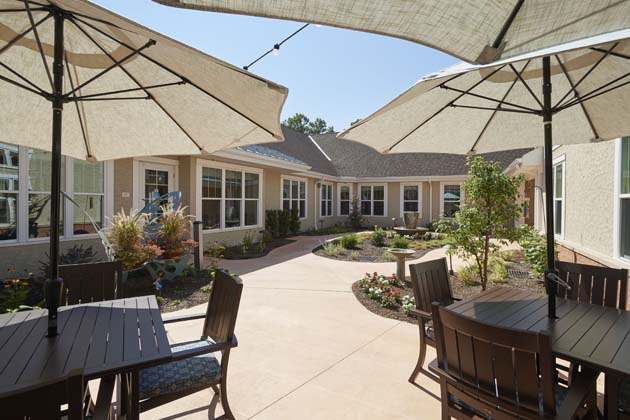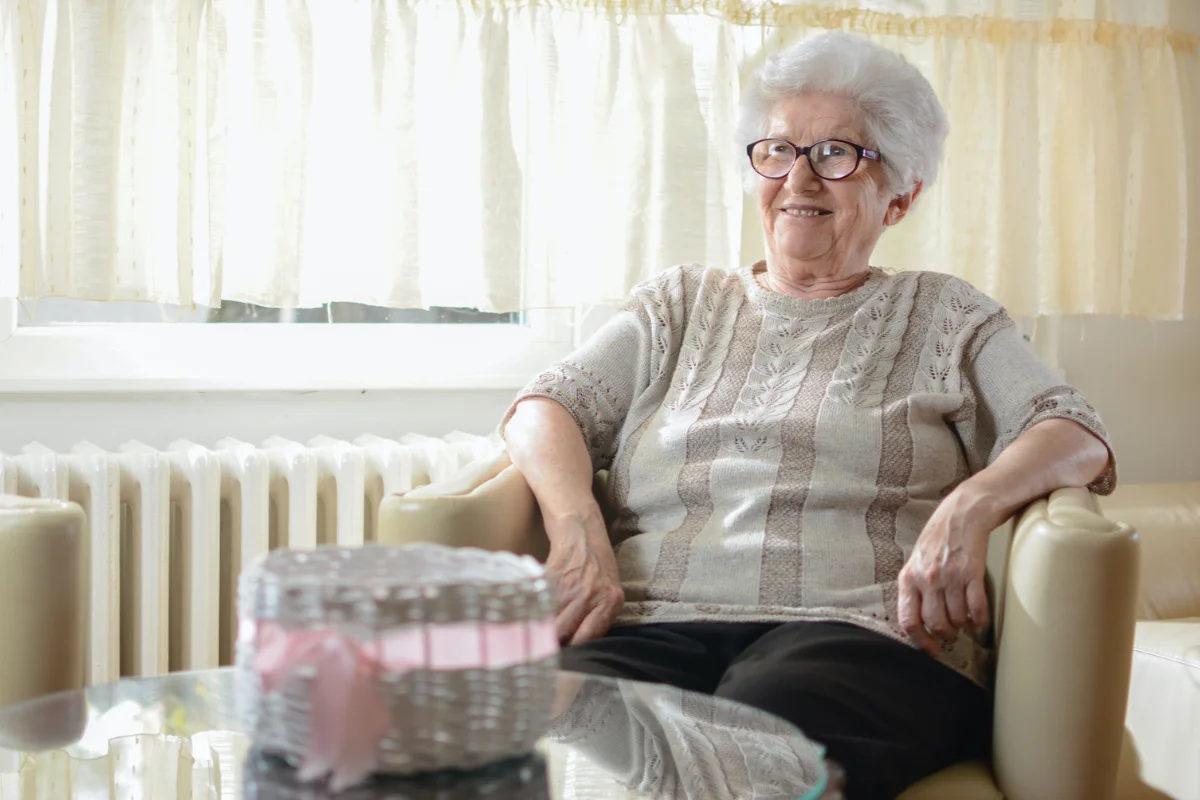Boutique Memory Care Environments That Support and Comfort
Everything About Memory Care Services: Why Little Memory Care Homes Are a Wonderful Selection
Memory care services play an essential duty in sustaining individuals with Alzheimer's and dementia. Tiny memory care homes stick out for their personalized approach and intimate setup. With reduced staff-to-resident ratios, these homes cultivate stronger connections and tailored care. Residents gain from enhanced social communications and a secure atmosphere. As family members check out options, recognizing the special advantages of little memory treatment homes becomes vital. What elements should be considered when picking the appropriate home?
Understanding Memory Treatment Solutions
While many may recognize with general senior treatment alternatives, comprehending memory treatment solutions is important for families facing the challenges of cognitive decline. Memory treatment specifically satisfies individuals with conditions such as Alzheimer's illness and other types of mental deterioration. These solutions offer a structured setting that concentrates on enhancing the lifestyle for locals through specialized treatment and support.Memory treatment centers are made to guarantee safety and safety, frequently featuring secured environments to avoid straying. Trained employee are available around the clock to aid with day-to-day activities, drug monitoring, and personal treatment. In addition, memory care programs commonly include cognitive excitement tasks, customized to engage citizens and advertise psychological well-being. Families can gain from recognizing these services, as they allow notified decisions regarding their loved ones' care, making sure that their certain needs and preferences are addressed in a caring and encouraging manner.
The Advantages of Tiny Memory Treatment Houses
Little memory care homes supply distinct benefits that can significantly improve the quality of life for locals with cognitive impairments. One substantial benefit is the intimate atmosphere, which permits for tailored communications amongst personnel and locals. This smaller setting fosters meaningful partnerships, minimizing sensations of isolation and anxiety usually experienced by people with memory issues.Additionally, the lower staff-to-resident proportion in tiny memory care homes enables caregivers to give even more alert supervision and support. This technique not only enhances safety and security yet likewise advertises a complacency for the residents.Moreover, small memory treatment homes can adapt rapidly to the one-of-a-kind requirements and preferences of each homeowner, permitting a much more homelike environment. Such an atmosphere can urge social engagement and involvement in tasks, eventually enriching the everyday experiences of those coping with cognitive impairments.
Personalized Treatment Plans for Locals
Customized care strategies are important in memory treatment homes, as they deal with the unique requirements and preferences of each resident. These strategies start with comprehensive evaluations performed by proficient professionals, who review cognitive abilities, clinical background, and personal rate of interests. This tailored strategy assurances that care is not only reliable however likewise considerate of each person's dignity and autonomy.Moreover, individualized care plans are versatile, enabling modifications as residents' demands develop with time. This flexibility cultivates a complacency and experience, which is crucial for people dealing with memory obstacles. Caretakers are educated to apply these strategies regularly, giving assistance that aligns with the residents' regimens and preferences.Ultimately, customized treatment strategies improve the top quality of life for citizens by advertising freedom, involvement, and wellness, making them a basic element of memory treatment services in tiny memory care homes.
Creating a Home-Like Atmosphere
Developing a home-like setting is essential for cultivating convenience and knowledge in memory treatment settings, as it substantially impacts residents' psychological health. Little memory care homes often focus on tailored touches, such as warm shade palettes, family photos, and familiar furniture arrangements, which assist homeowners feel more at simplicity. Including components reminiscent of a traditional home, like comfy home and communal locations, urges a feeling of belonging.Moreover, making use of all-natural light and exterior areas can boost the environment, promoting relaxation and peace. Personnel participants play a considerable role in maintaining this setting by involving with residents in a compassionate way, treating them like family. Regular tasks, such as food preparation or gardening, can additionally add to a home-like feel, offering possibilities for citizens to participate in meaningful experiences. Generally, developing a supporting atmosphere supports cognitive feature and emotional stability, making it a necessary facet of memory care services.
Boosted Social Communication and Neighborhood
Improved social communication and community are vital parts of memory care solutions. By promoting customized social involvement and producing a family-like environment, these solutions promote purposeful links amongst homeowners. Group events and activities further encourage involvement, assisting people really feel much more included and supported.
Individualized Social Involvement
While social communication is necessary for total well-being, several individuals with memory problems frequently have a hard time to involve meaningfully with others. Individualized social engagement in memory treatment homes addresses this challenge by developing customized tasks that satisfy residents' unique passions and capabilities. By focusing on private preferences, caregivers can cultivate connections that resonate deeply with each individual. Activities such as art treatment, music sessions, and directed discussions advertise cognitive excitement and emotional expression. Additionally, little team setups urge camaraderie and enable even more intimate communications, improving feelings of belonging. This approach not just deals with sensations of seclusion however likewise encourages citizens to maintain a sense of identification, eventually adding to enhanced psychological health and wellness and lifestyle.
Family-like Environment
In a memory treatment setup, promoting a family-like atmosphere greatly improves social interaction and constructs a sense of area amongst residents. Smaller sized memory care homes frequently focus on intimate environments, allowing residents to develop closer connections with each other and personnel. This nurturing ambience advertises trust fund, which is important for people with memory disabilities. Locals are most likely to talk and share experiences, creating a supportive network that reduces feelings of isolation. The experience of shared spaces and regimens adds to a sense of belonging, even more encouraging social interaction (personalized memory care). In such setups, psychological bonds grow, leading to improved overall well-being and a higher quality of life for residents as they browse their everyday experiences with each other
Group Activities and Events

Security and Protection Attributes in Small Residences
Lots of small homes made for memory care integrate important safety and security and protection functions to assure the health of citizens. These homes commonly make use of protected entry and leave indicate stop roaming, an usual issue amongst people with memory impairments. Furthermore, security systems and alarm system devices improve surveillance, making certain that team can without delay respond to any type of unusual activities.Interior formats are tailored for security, with reduced risks such as clutter-free paths and sharp corners. Handrails and non-slip floor covering are normally installed to decrease the risk of drops. Personnel members are educated in emergency situation methods, guaranteeing they are gotten ready for different situations.Moreover, individualized care plans might consist of analysis of individual security requirements, giving tailored options for each and every citizen. Overall, these security and security features create a nurturing setting where homeowners can thrive while preserving their dignity and independence.
Just how to Choose the Right Memory Care Home
How can families assure they choose the most ideal memory treatment home for their liked ones? The decision calls for mindful factor to consider of a number of elements. First, families ought to examine the center's staff certifications and training, making certain that caretakers are experienced in handling memory-related problems. Next, it's vital to examine the home's environment, concentrating on security attributes and whether it cultivates a sense of community and belonging. Checking out the center can provide understanding right into daily activities and the social ambience, which are necessary for psychological stimulation and psychological health. In addition, households must ask regarding the treatment strategies used, ensuring they are tailored to private requirements. Lastly, taking into consideration the home's area and access for household gos to can add to a smoother shift. By addressing these aspects, families can make an informed choice that prioritizes their enjoyed one's convenience and top quality of life in a memory care setup.
Often Asked Inquiries
What Certifications Should Team Members in Memory Treatment Residences Have?
Team members in memory care homes should have relevant qualifications, experience in mental deterioration care, solid communication abilities, and empathy. Recurring training in behavioral administration and restorative interventions improves their capability to support locals efficiently.
How Do Memory Care Provider Differ From Traditional Assisted Living?
Memory care solutions focus specifically on people with memory problems, supplying customized support and organized atmospheres. On the other hand, traditional assisted living offers basic support with day-to-day activities, lacking the tailored strategy essential for those with cognitive obstacles.
What Types of Tasks Are Used in Memory Care Homes?
Memory care homes commonly offer a variety of tasks developed to involve locals. Usual choices consist of art therapy, music sessions, cognitive games, workouts, gardening, and gatherings, all focused on enhancing well-being and cognitive feature.
Can Locals Bring Their Own Personal Belongings to Memory Treatment Houses?
Homeowners can normally bring their very own personal belongings to memory treatment homes, permitting them to personalize their living area - personalized memory care. This practice helps develop an acquainted environment, advertising comfort and a sense of identity for the people

How Are Relative Included in the Treatment Refine?
Relative play a necessary role in the treatment procedure, usually joining decision-making, going to care meetings, and offering emotional support. Their participation cultivates a collaborative atmosphere, boosting the local's general wellness and lifestyle. While many may be acquainted with basic senior treatment options, comprehending small memory carehomes Charlotte memory treatment services is essential for households encountering the obstacles of cognitive decline. These services provide a structured setting that concentrates on boosting the top quality of life for residents through specialized care and support.Memory treatment facilities are designed to guarantee safety and safety, usually featuring secured environments to avoid roaming. Individualized treatment plans are vital in memory treatment homes, as they cater to the special needs and choices of each local. Personnel participants in memory care homes must have appropriate qualifications, experience in mental deterioration treatment, strong interaction abilities, and compassion. Memory treatment services focus especially on individuals with memory disabilities, giving customized support and structured atmospheres.